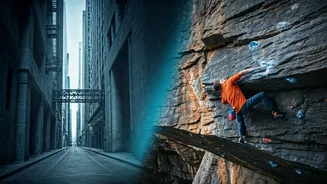Addressing Displacement Concerns
The Bombay High Court received assurances from the Central Railway and the Mumbai Metropolitan Region Development Authority (MMRDA) regarding the well-being
of 627 Dharavi slum dwellers. This intervention was in response to concerns about the potential displacement of these residents. The court's involvement underscores the importance of ensuring that any development projects prioritize the needs and rights of those affected. The assurance provided by these authorities highlights a commitment to providing not only alternative housing but also essential amenities like potable water. This case reflects a broader trend of judicial oversight in urban development projects, emphasizing the necessity of fair and equitable solutions for those impacted by infrastructure changes. It shows that authorities are stepping up to assist the displaced, keeping the needs of the people first.
Commitment to Housing
Central Railway and MMRDA have made a firm commitment to provide alternative housing for the 627 Dharavi slum dwellers. This is a crucial aspect of the assurances given to the Bombay High Court. The provision of alternative housing is a direct response to the potential displacement caused by various projects. The authorities recognize the importance of securing a place to live, along with basic necessities like clean drinking water for the affected residents. The details of the housing arrangements, including the location, size, and amenities of the new homes, remain the subject of ongoing discussions and planning. This move signifies that the authorities are working to ensure that the residents are not only relocated but also have access to suitable living conditions. The commitment underlines a dedication to the residents' welfare and a desire to minimize the hardships often associated with displacement in urban development projects. Further discussions are likely to follow as the project continues.
Potable Water Provision
Along with alternative housing, the Central Railway and MMRDA have also guaranteed the provision of potable water to the 627 Dharavi slum dwellers. Access to safe drinking water is a fundamental necessity for human health and well-being. This assurance is integral to the comprehensive approach taken to address the residents' needs. Potable water is vital for preventing waterborne diseases and maintaining good hygiene, especially in densely populated areas such as Dharavi. The provision of water demonstrates a commitment to ensuring that the new homes will have necessary amenities. The authorities' focus on this aspect underscores their awareness of the critical importance of essential services. This undertaking is not merely about relocation; it also aims to provide an environment in which the residents can thrive, ensuring a fundamental right is protected. Further planning will be required to guarantee that these plans become a reality.
Legal and Social Impact
The assurances from Central Railway and MMRDA have legal and social implications. The Bombay High Court's involvement highlights the role of the judiciary in overseeing development projects and safeguarding the rights of affected communities. This intervention sets a precedent for how similar situations should be handled, setting a standard for responsible urban development. The commitment to providing alternative housing and potable water serves as a key aspect of social justice, minimizing the potential negative impacts of infrastructural changes. This will also help maintain social harmony, as the authorities are trying their best to assist the people. The case underscores the need for transparency, accountability, and the involvement of affected communities in urban development projects. This initiative signifies a step toward ensuring equitable solutions and better lives for vulnerable populations. It is a sign of good governance and shows that the well-being of the residents is given priority.












